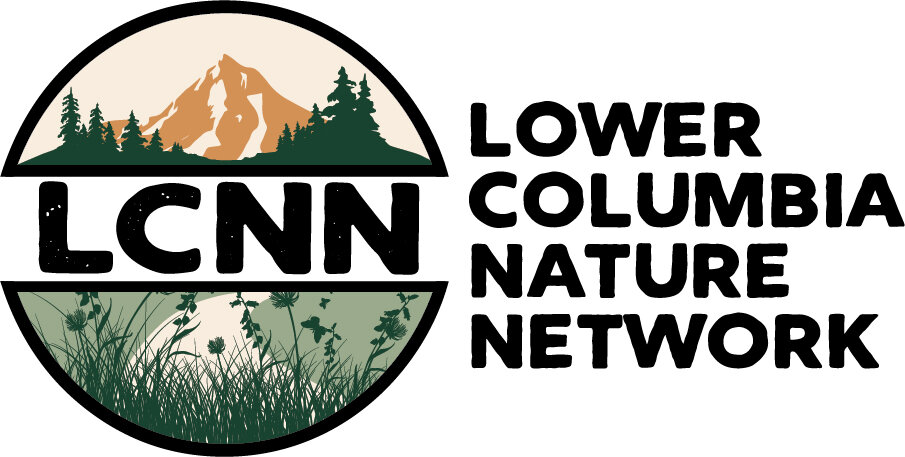Accessibility: January partner meeting follow-up
In January, our Lower Columbia Nature Network partner meeting focused on accessibility. Our panel included outdoor experts with lived experience with a disability who shared personal stories in addition to their professional expertise. Panelists included:
• Georgena Moran, accessibility specialist with Access for All, LLC, project manager for Access Recreation
• Cora Bordley, environmental educator and access and inclusion coordinator, Lower Columbia Estuary Partnership
• Chuck Frayer, Retired USDA Forest Service, regional accessibility program manager, Pacific NW Region
Here are a few highlights of the information covered. Watch the full video to hear all the great information shared. Check out our new Accessibility page with all the links shared in the meeting and even more resources.
Disabilities can come in many forms, some invisible to the public, and affect one in four people. The focus of the presentation was to educate those who work with the public on how to make their site or program more accessible and how to work with the person to determine how to best meet their needs.
One big topic was respect. Realize the power of your words and use people first language. Words like handicapped or special needs don’t show respect. Choosing “people with disabilities” honors the person instead of highlighting the disability. Person-first language is language that puts a person before their diagnosis, such as being a person with a disability. Identity-first language is language that leads with a person’s diagnosis, such as being a disabled person. You can read more about Person First vs Identity First language here. You can also follow the lead on how the person wants to identify themselves.
Some wonder how much to ask and what’s appropriate to ask when assessing how to help a student or other visitor planning to visit your site. Keep in mind what you need to know to host the person versus what you want to know. Assess what is important for you to know to make the visit a success rather than finding out why a person is in a wheelchair or has other needs.
Be sure to address the person with the disability directly. It can be easy to defer to who is accompanying the person, but that leaves the person with a disability feeling unimportant and not heard.
“If you make accommodations for people with disabilities, you accommodate everyone.”
Give physical address for your events. Transit services won’t transport a person to a place without a physical address. Provide information on transit and some people with disabilities don’t drive.
We discussed what Information organizations can provide to a participant before visiting your site. It was agreed this is tough to address since there is such a every disability is unique to each individual. It was encouraged to have a one-on-one conversation about terrain, activity, duration, bathroom facilities, parking, wheelchair accessibility. A personal conversation goes a long way versus generic information on a website.
Resources
Check out our new Accessibility page with all the links shared in the meeting and even more resources.
Watch the full video of the meeting below (panel discussion facilitated by Jane Tesner Kleiner, LCNN Program Manager):
